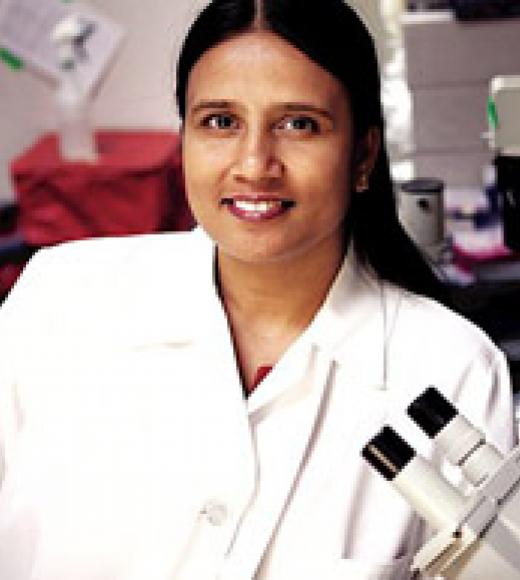
Position Title
Graphics Software Application Engineer
- Intel Corp., Sacramento, CA
Appointment period: 8/25/2008 to 8/31/2009
Award: Postdoctoral Prostate Cancer Training Fellowship from Department of Defense, September 2009 - August 2011
Project
Characterization of the role of JMJD5 in Androgen Receptor Signaling in Prostate cancer
Research Project:
Prostate cancer (PCA) is the most common type of cancer diagnosed in the United States and is the second leading cause of cancer deaths in men. It is now established that both genetic as well as epigenetic modes of regulation and aberrant signal transduction contribute to the progression of cancer. However, the genetic causes of PCA that involve alterations in the DNA sequence, account only for about 5-10% of overall incidence of PCA. Hence epigenetics, which encompasses modification of the underlying DNA and chromatin and regulate the ultimate effect on gene expression, has gained immense attention. The recent seminal discovery of histone demethylases that can revert the mono, di and tri methylation of histones has unequivocally demonstrated that methylation is not irreversible, but indeed is dynamic and can have a profound effect on the regulation of cancer progression as well. Dr.Kung’s lab has recently identified and cloned a novel member of the demethylase family, designated as JMJD5. The central goal of the current proposal is to characterize the effects of JMJD5 expression on Androgen receptor (AR) activity and the ultimate biological effects in prostate cancer cells.
Background:
JMJD5 belongs to the jumonji family of proteins, characterized by the presence of the Jumonji Catalytic (JmjC) signature domain. To date, 27 different JmjC domain proteins have been identified within the human genome, of which 15 have been demonstrated to demethylate specific lysines in the H3 tail and one to demethylate the methylated arginine. The functions of the JmjC proteins are conserved across various organisms, indicating their biological significance. In addition, JMJD2A, JMJD2B, and JMJD2C/GASC1 are all highly expressed in prostate cancer. These and various other studies have instigated immense interest in the JmjC protein family and propelled us to identify and investigate the role of JMJD5, due to the long standing interest of my mentor in prostate cancer research.
Specific Aims:
- Evaluate the role of JMJD5 as a proline hydroxylase and its effects on AR activity.
- Determine the biological effects of JMJD5 expression on prostate cell growth.
Research Experience and Career Goals:
My graduate studies on the role of Muc1 ablation on mammary tumor development utilizing transgenic mouse models resulted in a first author publication in Cancer Research. In addition, my research had also demonstrated for the first time that a mucin can have profound effect on ErbB receptor signaling and ubiquitination and lead to another first author publication in Oncogene. After the completion of my Ph.D, my next career goal was to continue to work in the field of cancer research that uses cutting edge technology, promotes collaboration with multidisciplinary sciences and fosters my independent career. Dr. Hsing-Jien Kung’s lab at the UC Davis proved an excellent opportunity for me due to his tremendous research experience in the field of oncogenes and contributions to prostate cancer research. My career goal upon completion of my postdoctoral research is to establish my own lab focused on prostate cancer research in an academic setting and be involved in a program that fosters interactions with multidisciplinary sciences. The umbrella of Dr. Kung’s seasoned mentorship, excellent resources and collaborations will provide an excellent environment to hone my technical skills and form a strong foundation to develop my scientific career in prostate cancer research.
